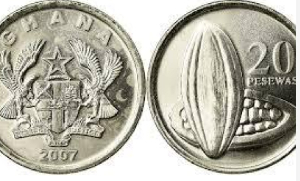Ghana is aspiring to host the 27th United Nations Climate Change Conference (COP27) where states that are Parties to the Climate Convention, meet to review the implementation of the Convention and take decisions.
In pursuant to the desire, the country has verbally informed the secretariat of the United Nations Framework Convention on Climate Change of its intentions.
Mr Peter Dery, the Acting Director of Environment at the Ministry of Environment, Science, Technology, and Innovation (MESTI), who announced this at a press briefing session of COP25 outcome, said the secretariat had asked Ghana to send a formal application.
He stated that other steps Ghana would commence soon were the sourcing for funding for the hosting and the negotiation with the African bloc to solicit for their support.
Talking about the country’s participation and outcomes, Mr Dery said apart from the technical group contributing to the main negotiations, a number of bilateral deals were made to support the implementation of the National Determined Adaptation Commitments actions.
He said Ghana had secured funding from the government of Switzerland and France to pilot a renewable energy project that would earn Ghana $20 million a year and another two million dollar climate change adaptation projects to focus on rainwater harvesting.
The team also locked a grant of five million dollars from the government of Korea to undertake a cook stove project.
Ghana, he said had also been given the opportunity to host the Africa Youth Climate Change Academy to train negotiators and advocates.
Mr John Pwamang, the Acting Executive Director of the Environmental Protection Agency (EPA), said COP25 was the last meeting for the global community to actually plan for the implementation of the Paris Agreement, which came out of the United Nations Framework Convention on Climate Change with principles that the world had to use to ensure the Agreement was implemented.
He described Ghana’s participation as very critical because the country, as part of the global community, needed to be part of the global negotiations expected to come out with the implementation plan for the Paris Agreement, which would roll out in 2020.
“All the critical sectors in Ghana, made up of Transport, Energy, Agriculture, Environment, among others are all are presented at the COPto ensure that all the nation’s implementation interest were taken into considerations at the global conference,” he explained.
According to Mr Pwamang, “when Ghana enter 2020, the 10 year period between 2020 and 2030, we can also make an impact in trying to get our NDCs fully implemented to ensure that we also meet the provisions of the Paris Agreement, and ensure that we develop as a country”.
Mrs Angelina Tutuah Mensah, Chief Programme Officer at the EPA, giving a briefing of the Responds Measures said Ghana was to develop a labour plan that would identify sectors that would be critically affected by climate issues.
“There are issues that are arising from the implementation of mitigation policies and actions taken by Parties under the Convention, the Kyoto Protocol and the Paris Agreement, and how these mitigation policies/actions could have “in-jurisdiction” and “out-of-jurisdiction” or cross-border impacts,’ she said.
Mrs Mensah said there was an urgent need to assess, analyze, address and report these cross-border environmental, social and economic impacts.
“If all European countries switched to the use of electrical vehicles what will be the consequences of this development on Ghana’s transport sector and also mechanics as well as their work,” she added.
Mrs Mensah said the impacts could be positive or negative; therefore, the Convention, the Kyoto Protocol, and the Paris Agreement seek to minimize the negative and maximize the positive impacts of implementation of mitigation policies and actions.
General News of Thursday, 27 February 2020
Source: GNA













